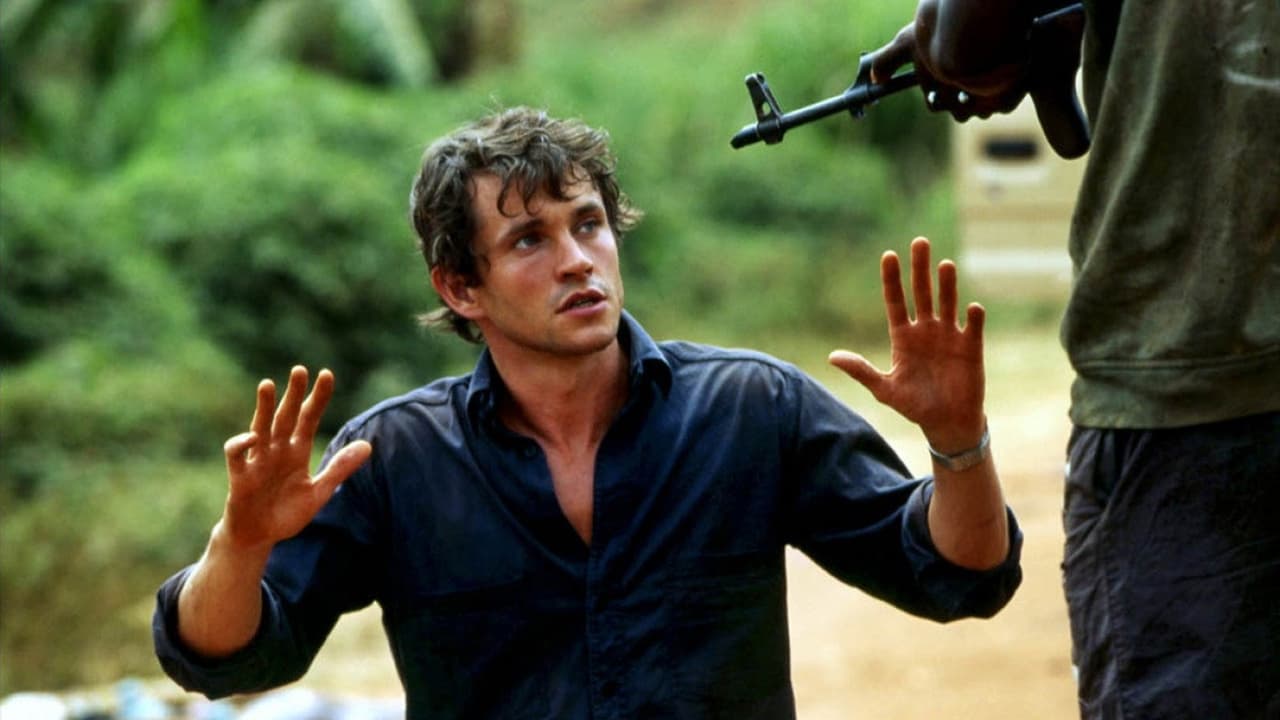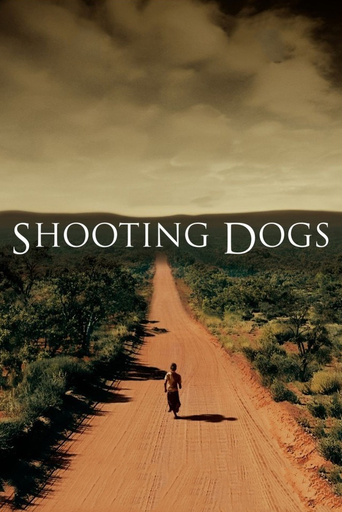

Its hard to make a film that depicts a recent era of genocide where many people, ethnic groups and organisations do not come out of it so well.Director Michael Caton-Jones takes up the challenge and shot this film in an area of Rwanda where some of the violence occurred, using a crew who were personally affected by the slaughter.John Hurt plays a Catholic priest and Hugh Dancy an English teacher, who are caught up in the events of the genocide. They now see people they knew choosing sides, even committing violence.Once the conflict between Hutus and Tutsis went out of control in the early 1990s the UN troops just stood by and watched and eventually left many without protection to be slaughtered.The film tries to get us to care for the characters knowing full well some of them will be slaughtered, even children and babies. It also has to make some political criticisms about governments and UN troops as well as being an adventure with Hurt trying to save some people from the mindless violence.The film does not wholly succeed, there is no hook here that grabs you like it did in a film such as The Killing Fields. Still its an important subject matter, a lot of the violence is implied as the film does not want to glory in the genocide but it is still strong, grim viewing.
... View MoreI have no idea why a person would rate this less than 10. It was done very well, well chosen actors and good performances. The story was portrayed very realistically. I was truly connected with the characters and was moved by this story. It is sad that this movie is not that popular when there is so much popular crap going on. This movie shows reality and makes us think about important issues, about us, humans, and the humanity. I read the reviews which were negative and the reasons were too weak. I was thinking how easy it is to make people fear of some group and make them kill others without thinking... Why people don't think deeper, why the mass is so shallow (I have these thoughts whenever I remember Hitler and his "work")... I felt angry with UN soldiers, there can be no justification for them. Why were they there at all?.. And we call ourselves civilized people when these things happen... all the massive wars were not so long ago... and people still fight... use physical force instead of using the brain... sad...
... View MoreAs the closing credits role and we are told that the people whom worked on this film from behind the camera were those connected in some way to the events depicted, the idea that something as terrible as the Rwandan genocide of 1994 still lingers in the memory; still resonates with those either connected or around at the time. It renders the film a very personal project, and should really be enough ammunition for those who lambaste it for centering too much on two white British individuals, to see otherwise.The obvious comparisons to 2004's Hotel Rwanda have probably been done to death but for the record, I preferred this particular picture if only by not too much. I think this one is more concentrated; it doesn't hop around as much as Hotel Rwanda; it feels claustrophobic and it makes its characters come across as 'trapped' in this one, hemmed in location as the odds stack against them. The central character is a nobody, a young man "starring in his own Oxfam advert" dispelling any position of power he might have as opposed to the lead in Hotel Rwanda, who was a big, rich name what with his hotel ownership. Additionally, it doesn't have Nick Nolte pull out a gun and wave it around melodramatically every thirty or so minutes. Also, as one user comment pointed out, the film focuses more on a younger individual for the duration as opposed to the middle aged, family man that was Don Cheadle. I suppose this is another reason I preferred Shooting Dogs; the resonating and latching on more to the lead fresh out of education than the elder, more middle-aged, family businessman.That lead in question is Joe Connor (Dancy). He shares the same space with a priest known as Father Christoper (Hurt), that being the Ecole Technique Officielle, a school that sees Connor teach English and Christopher practice religion with the youngsters staying there; all of which is under the would-be protection of Belgian U.N. forces. As a primary focal point, the film revolves around the activity within these true-to-life walls as feint antagonism between Christopher and the Belgian U.N. Capitaine named Charles Delon (Horwitz). This acts as an establishing of voices within the location, as John Hurt's character speaks and states most things the audience would be thinking at that time or would want to happen. The scene in which the villagers desperately try to get into the compound at the Capitane's frustration but Christopher's encouragement acts as a good example. It also establishes positions of power, something that will contribute towards the more harrowing scenes later on.But the film is not one of those British produced kind that shows how kind and how wanting to help the Brits were while everyone else stands around in their uniforms and acts pompously. Indeed, it doesn't demonise any Belgians or their priorities but rather explores the madness of the situation as the United Nations peacekeepers keep repeating they're just sticking to their orders. Part of the reason, at the very end, the stock footage of the American giving a jumbled answer when asked about the Rwanda situation is linked to the look at how everyone had the chance to intervene but nothing was actually done due to either orders or permutations or whatever else. It represents more of a documentation than anything else.In a film-making sense, away from all the politics, director Michael Caton-Jones knows how to build a sense of foreboding, desperation and helplessness – three attributes that really complement the subject matter. When we initially hear about the beginnings of the atrocities, it is over a radio and implants a certain danger in both the character's and audience's minds as to the presence of all the violence occurring off screen. On the rare occurrence that the film ventures out of its compound location, there is a truly unnerving scene at a checkpoint dominated by one of the two warring tribes when a television crew and one of the leads are briefly held hostage as others are executed around them. What makes this more effective is the film's signalling, or getting across, of the dangers that lurk outside. It is linked as to why I found Shooting Dogs slightly more effective than Hotel Rwanda – the sense that in one location you are safe and anywhere else could likely be your place of death. I didn't get that emotion of fear instilled within me in Hotel Rwanda when it came to attention to spaces as much as I did here.As the film nears its conclusion, further pot boiling suspense focuses on the growing antagonism between the Belgian Capitaine and Christopher as they indulge in the moment that captures the title of the film and its overall message to do with the absurdity of the situation when the notion to shoot certain dogs outside the compound is issued. Amongst all the death and potential death is a woman giving birth to new life that acts as a nasty juxtaposition as it does a binary opposition to all the murder and further distress is caused when there's a power cut and notions of spies within the camp are raised as things descend deeper into chaos. While brilliantly acted and directed, Shooting Dogs delivers a powerful true story on top of a humbling and unexploited experience.
... View MoreCan't believe this is the same director who made one of my favorites of all time, "Doc Hollywood"! What a range. But, here again, wonderful creation of sense of place. If you think "Hotel Rwanda" did it all, think again. In many ways this film is more horrifying with its focus on a single technical college where many Tutsis took refuge despite the impotence of UN soldiers based there. I also admired the inclusion of details that showed the Rwandans not simply as passive victims, but organizing themselves within the compound to promote their own welfare and resisting where possible.The film ably depicted the "thuggery" of the Hutu militias. Scholars of ethnic conflict have noted how thugs use the cover of ethnicity to exploit unsettled situations. The solution? Prompt "policing", a strong show of force, as could have been provided by the UN.
... View More